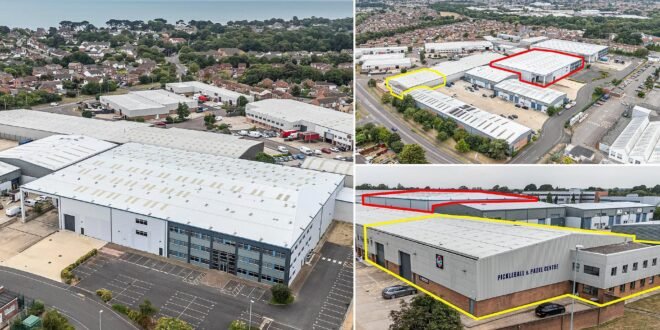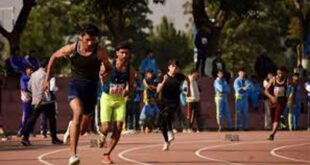Community Fights to Halt Expansion of Padel Tennis Complex
Residents in Christchurch, Dorset, are raising concerns over a proposed expansion of a padel tennis centre that they believe will disrupt their daily lives and damage the tranquility of their neighborhoods. The new development, which would be built adjacent to an existing padel tennis facility, has sparked fierce opposition from local residents who argue it will lead to increased noise, traffic, and pollution.
The plans, submitted by Advantage Padel, have drawn strong reactions from 25 residents who have formally objected to the proposal. The proposed site includes nine full-size courts and four singles courts, allowing up to 44 players to compete simultaneously. This expansion would add to an already established padel tennis business located within the same industrial complex, leading to fears that the area could become overcrowded and noisy.
Padel tennis, a rapidly growing sport in the UK, is known for its unique equipment and rules. Unlike traditional tennis, padel rackets are solid and stringless, making them heavier and producing louder sounds when striking the ball. The sport’s popularity has surged in recent years, with more than 25 million active players across 90 countries by 2023.
Local residents argue that the new centre, which would operate from 7am to 10pm every day, will leave little room for relaxation in their gardens. Mark Anderson, one of the objectors, said: “Padel tennis is very loud, and having multiple courts used all times of day and evening will be very disruptive. I feel that this facility will add a lot of noise in the area.”
Julia Gladstone echoed these sentiments, stating that the increase in traffic and noise would significantly impact nearby residents. She added, “The centre will be open from early morning to late evening and will create a high level of noise which will affect local residents and have a negative impact on their use of the garden for relaxation.”
Kevan Thornton expressed concern about the noise levels, even if the facility is enclosed. He said, “The huge number of padel courts will generate a tremendous noise which, despite being in an enclosed building, will have an adverse effect on local offices and neighbours.”
Some residents also worry that the new centre could push out a smaller, existing padel business just 350 yards away. The PicklePad, the UK’s first dedicated pickleball and padel indoor centre, opened in January and is already meeting the demand for the sport in the area. Hayley Richardson, a local resident, pointed out that the applicant failed to acknowledge the presence of this established facility. She said, “Their assertion that no such facility exists in Christchurch, and that there is an unmet demand, is therefore inaccurate.”
Richard McWilliam added that the new facility would cause “misery” for residents. He noted that while he supports sports and fitness initiatives, approving another similar facility so soon after the opening of the PicklePad was short-sighted.
Despite the opposition, not everyone is against the plans. Jonathan Facer, a local supporter, believes the new centre will bring job opportunities and improve access to the sport. He said, “It will give more access to a fantastic new sport. It will be great to have one of the largest padel tennis centres in the south of England, right here in Christchurch. I can’t wait!”
Padel tennis shares similarities with tennis but has distinct differences. It uses a solid racket and allows the ball to be hit off the court walls, similar to squash. These features contribute to its louder sound, often compared to gunfire. The sport was invented in Mexico in the 1960s but gained global popularity during the pandemic due to its outdoor nature and lack of physical contact.
In the UK, the Lawn Tennis Association reports that the number of padel courts has grown from 50 in 2019 to 350, with a goal of reaching 1,000 by the end of next year. As the sport continues to expand, communities like Christchurch face difficult decisions about how to balance growth with quality of life.
 Info Malang Raya Its All About World News
Info Malang Raya Its All About World News



